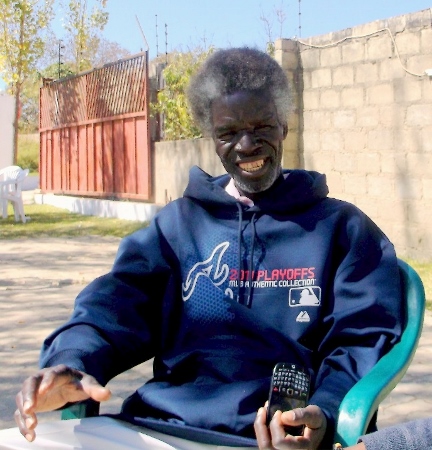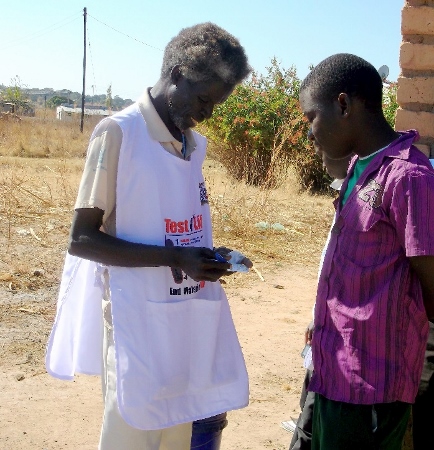The health sector in Zambia faces major human resources challenges, with a shortage of health care workers at practically every service delivery level. For example, according to the World Health Organization (WHO) recommended establishment, Zambia faces a shortage of 9,271 nurses (a vacancy rate of 55%), 2,538 clinical officers (a vacancy rate of 63%), and 1,464 doctors (a vacancy rate of 64%) as of January 2010. To compensate for this critical shortage, like many developing countries with human resource shortages in the health sector, Zambia has utilized community health workers (CHWs) to alleviate the workload of delivering primary health care services for the few trained health care workers within the health care system, especially for the provision of basic preventive, health care promotion and curative health services in underserved rural areas.
But how does one become a community health worker? Do they receive any formal training? What are some of the challenges they face in their daily life of service? As I started my life of service as a Global Health Corps fellow, I interviewed Mr. Morris Banda to gain insight into the life of a CHW.
Morris is 55 years old and lives in Sinazongwe, a rural town in the Southern Province of Zambia. He has served the community as a community health worker for well over 15 years. He is currently involved in the Malaria Mass Test and Treat campaign being supported by PATH under the Malaria Control and Elimination Partnership in Africa (MACEPA) program.

Q. How did you become a Community Health Worker (CHW)?
A: I started off as a Red Cross member in secondary school. I then joined the then National Drug Company after completion of high school. When I came back to the village in early 1997, I joined the Neighborhood Health Committee, and then later, nominated as a community health worker.
Q: Did you receive any formal training?
A: Yes. We have been trained several times; we receive training through various workshops . . . so the government and its partner organizations train us under various programs.
Q. Are you satisfied with your work?
A: I love my work! I am very satisfied with my work!
Q. What are some of the challenges that you are facing as a CHW?
A. Challenges begin right at home when you are leaving. What they expect me to do is look for food to eat and sustain my family. But remember: our work is voluntary. That makes it hard for our families to understand.
Then when we go out on the communities, transport is our main problem. We do not have small catchment areas. Others are too big! We have to move far and wide.
Also remember that our work is voluntary. We sometimes wish that the government would consider paying us, putting us on their payroll; that would be very helpful. We spend so much of our time collecting data, diagnosing illnesses, administering treatment and so on.

Q: Getting down to the community, how do they view you? What is the prevailing attitude towards CHWs in your community?
A: Generally we are well respected. The communities we serve appreciate the work we do.
Q. With that in mind, what advice would you give to your fellow CHWs?
A. A CHW must be humble. That is the biggest key to being a successful CHW. We also need to learn to understand people’s culture. This is equally vital.
What are some of the lessons I learnt from Morris, fresh from training, ready to launch my year of service under the GHC fellowship? Two universal lessons: First, to serve a community, one needs humility and a deep understanding and appreciation of the culture of the community. Secondly, that in some cases, not even our closest of friends and family will understand the desire, the will and passion we have to step out of our comfort zone to serve for social justice, for something as essential as the health of another human being.
As I listened to Morris speak, I also realized that there is much that can be done to better the motivation levels of the hard working CHWs who are in most cases the primary contacts of those seeking health services in rural communities. It is commendable that the Government of Zambia through the Ministry of Health, in 2010, piloted the National Community Health Worker Strategy which in part recommended that CHWs “will have to [receive] a standardized training program of 12 months, including both theoretical and practical training, by qualified and experienced tutors and instructors.” Four years later, how much of this is really being implemented? Can more be done in providing career, social or monetary incentives to CHWs and with what effect on the quality of service (Further reading: http://www.poverty-action.org/project/0512)? I certainly do look forward to delving more into the working parts of the Ministry of Health as a GHC fellow and better understand how clinics and health centers and organizations like PATH coordinate and partner with CHWs to offer the best care to every Zambian, no matter where they live.
